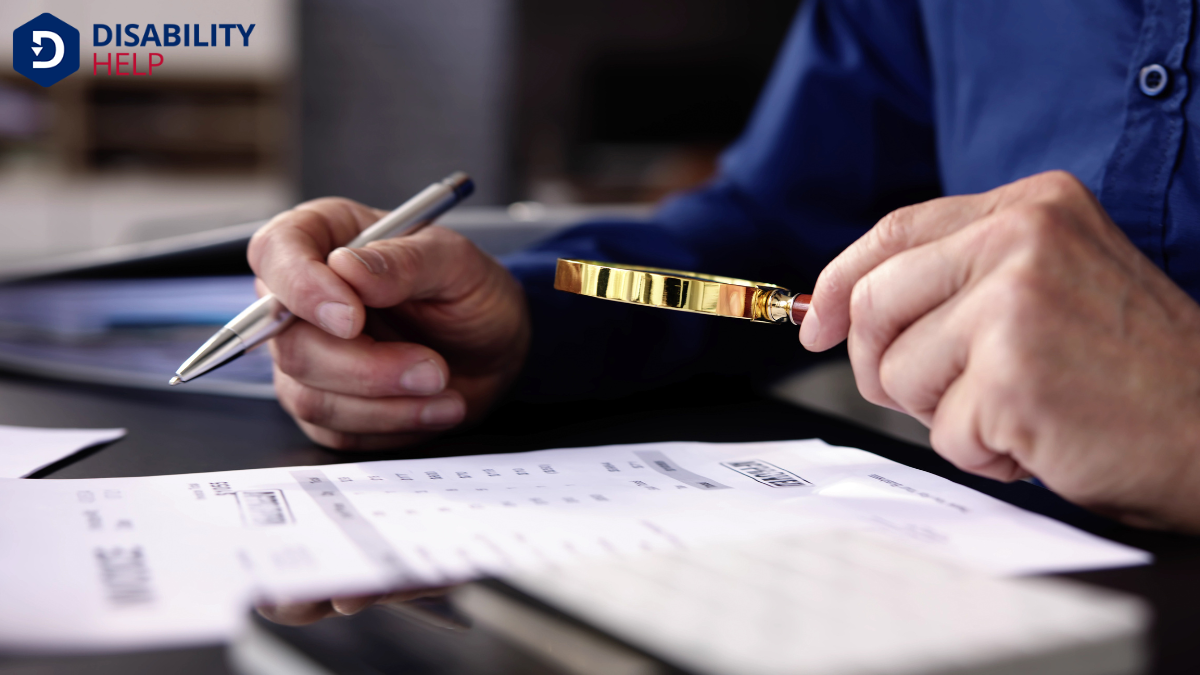When discussing the role of an insurance adjuster, we often focus on their key responsibilities in evaluating claims and ensuring they align with policy terms. We rely on their expertise to assess damages, communicate with policyholders, and gather essential evidence. Their negotiation skills come into play as they endeavor to settle claims fairly, keeping the interests of both the insurer and the claimant in mind. But what skills make an adjuster truly effective in this intricate process?
Key Takeaways
- An insurance adjuster evaluates claims to ensure they align with policy terms.
- They gather information by communicating with policyholders, witnesses, and experts.
- Adjusters assess damages using evidence such as documents, photos, and videos.
- They negotiate fair settlements, balancing the interests of insurers and claimants.
- Adjusters stay informed about regulations and legal requirements for compliance.
Understanding the Responsibilities of an Insurance Adjuster
Although the role of an insurance adjuster might seem straightforward, it involves a wide array of responsibilities that require keen attention to detail and strong analytical skills.
We need to evaluate claims thoroughly, ensuring that each claim aligns with policy terms. We communicate with policyholders, witnesses, and experts to gather necessary information. It’s essential to review all evidence, from documents to photos, to assess damages accurately.
Our role also demands that we negotiate settlements fairly, balancing the interests of the insurance company and the claimant.
We must stay informed about industry regulations and legal requirements, ensuring compliance in every case. By maintaining a high level of integrity and transparency, we build trust with clients and foster long-term relationships.
Let’s embrace these responsibilities together.
The Claims Investigation Process

With a clear understanding of our responsibilities, we now focus on the claims investigation process, where our skills truly come into play.
As adjusters, we begin by reviewing the initial claim report to gather all relevant details. We contact the claimant to verify the information and clarify any uncertainties.
Our next step involves inspecting the scene or property and documenting evidence through photos and notes. We also interview witnesses and other involved parties to get a thorough view of the incident.
Assessing Damages and Policy Coverage
As we evaluate damages, we focus on assessing the extent of the loss and its implications.
Our role involves a careful analysis of the policy terms to guarantee we comprehend what's covered and any limitations that might affect the claim.
Damage Evaluation Process
When evaluating damages, we focus on a systematic approach to guarantee a thorough assessment and determine how well the policy covers the loss.
We begin by inspecting the site and documenting every detail, making certain nothing is overlooked. We use photos, videos, and measurements to capture the extent of the damage accurately. Our goal is to create a clear picture of the incident's impact.
Next, we compare the gathered information with the policy terms to see what's covered. We consider all aspects, such as deductibles and limits, to provide a fair evaluation. This step helps us determine the insurer's liability and make certain claimants get what they're entitled to.
Throughout the process, communication is key, and we keep you informed every step of the way.
Policy Terms Analysis
Analyzing the policy terms is a pivotal step after evaluating the damage, as it allows us to determine the extent of coverage and the insurer's obligations.
We'll explore the policy details, making certain we comprehend every clause and condition. This step is about matching the damages we've assessed with what's explicitly covered in the policy. We interpret the language carefully, identifying which aspects of the damage align with the coverage provided.
Our goal is to provide clarity—both for ourselves and the policyholder—on how the terms apply to the specific situation.
Coverage Limitations Impact
Understanding the impact of coverage limitations is essential, as it directly influences how we assess damages and align them with policy coverage.
When we evaluate a claim, we must consider what the policy covers and where its limits lie. These limitations can affect the compensation received, meaning not all damages might be fully covered.
It’s our job to guarantee that we interpret these limits accurately and communicate them clearly.
Negotiating Settlements With Policyholders
Negotiating settlements with policyholders is an essential part of what we do as insurance adjusters. We aim to guarantee that claims are resolved fairly and swiftly, balancing the needs of our clients with the company’s policies.
Our role involves analyzing claims thoroughly, considering the details, and understanding the policy terms. By engaging in open communication, we work towards a settlement that satisfies both parties.
We listen to policyholders’ concerns and explain the reasoning behind our offers clearly and professionally. Building trust is imperative, so we approach each case with empathyThe ability to understand and share the feelings of another, particularly important in understanding... and transparency.
Our goal is to reach a resolution that reflects the true value of the claim, making sure policyholders feel heard and respected throughout the process. This approach secures a smoother negotiation experience for everyone involved.
Key Skills and Qualities of an Effective Adjuster

As we explore the essential skills and qualities of an effective insurance adjuster, we must focus on strong analytical abilities, effective communication skills, and keen attention to detail.
These attributes enable us to assess claims accurately, negotiate settlements, and guarantee fair outcomes for all parties involved.
Let's examine how each of these skills contributes to an adjuster's success and enhances the claims process.
Strong Analytical Abilities
When evaluating claims, strong analytical abilities are vital for an insurance adjuster to effectively assess situations and make informed decisions. We must sift through complex information and identify key details that impact the claim's outcome.
Our role demands that we not only recognize patterns but also anticipate potential complications or discrepancies. By analyzing data, photos, and reports, we develop a thorough understanding of each unique case.
Moreover, we need to weigh the evidence and determine the credibility of different sources. This requires a keen eye for detail and the ability to separate relevant facts from noise.
Our analytical skills help us guarantee that each claim is assessed fairly and accurately, safeguarding both the insurer's and the policyholder's interests. In every case, honing these abilities is vital for successful claims resolution.
Effective Communication Skills
While strong analytical abilities are essential, effective communication skills are equally important for an insurance adjuster. We must articulate clearly and listen actively to gather accurate information.
When speaking with policyholders, it's imperative we explain complex terms in a way that's easy to understand, ensuring they feel informed and confident about the process.
Negotiating settlements requires us to present facts persuasively while maintaining professionalism and building trust with involved parties. Our written communication, from reports to emails, should be concise and precise, avoiding misunderstandings.
Empathy plays a key role, too; acknowledging the policyholder’s emotions can ease tension and foster cooperation.
Attention to Detail
Although it might seem obvious, paying close attention to detail is essential for an effective insurance adjuster. We must scrutinize every piece of information, no matter how small because even minor details can greatly impact the outcome of a claim.
Our role often involves sifting through complex documents, evaluating damages, and determining the validity of claims. Missing a single detail could lead to inaccurate evaluations, which might result in unfair settlements or even legal issues.
To excel in our role, we should develop a keen eye for accuracy and precision. By focusing on details, we guarantee that every claim is evaluated thoroughly and fairly.
This meticulous approach builds trust with our clients and guarantees that we uphold the highest standards of professionalism in our work.
How Adjusters Impact the Claims Resolution Timeline
Insurance adjusters play a pivotal role in determining how quickly a claim is resolved, directly impacting the timeline. We understand that every day counts for those awaiting a decision.
Adjusters streamline the process by:
- Accurate Assessment: Quickly evaluating damage and gathering evidence guarantees we possess a clear picture of the situation. This speeds up decision-making.
- Effective Communication: Keeping open lines with policyholders and involved parties helps resolve questions and mitigate delays.
- Negotiation Skills: Efficient negotiation with contractors or service providers can lead to faster settlements, reducing the time claims stay open.
- Timely Reporting: Promptly submitting reports and documentation to insurance companies guarantees that claims move through the necessary channels without unnecessary holdups.
Conclusion
In summary, we've seen how insurance adjusters play an essential role in the claims process by investigating, evaluating, and negotiating claims. Their ability to communicate effectively and analyze information guarantees that claims are resolved fairly and efficiently, balancing the needs of both the insurer and the policyholder. Through their work, adjusters help maintain trust in the insurance system and contribute to policyholder satisfaction. Let’s appreciate their dedication to making a complex process smoother for everyone involved.






